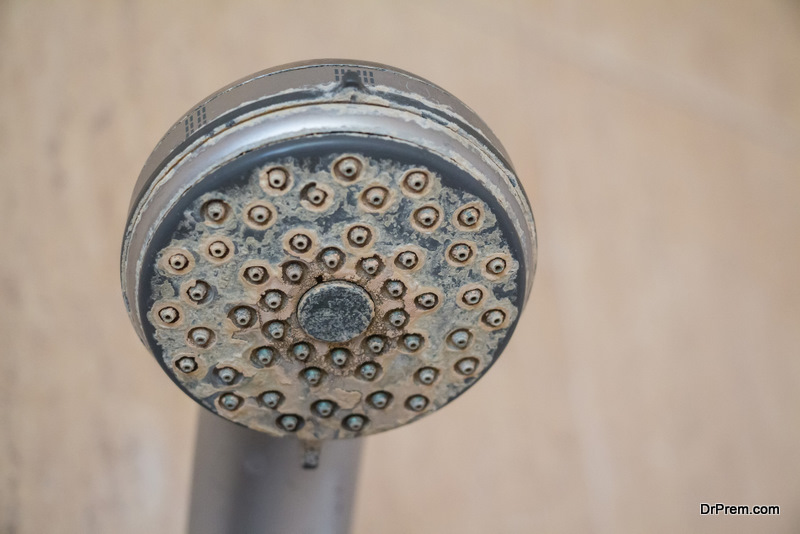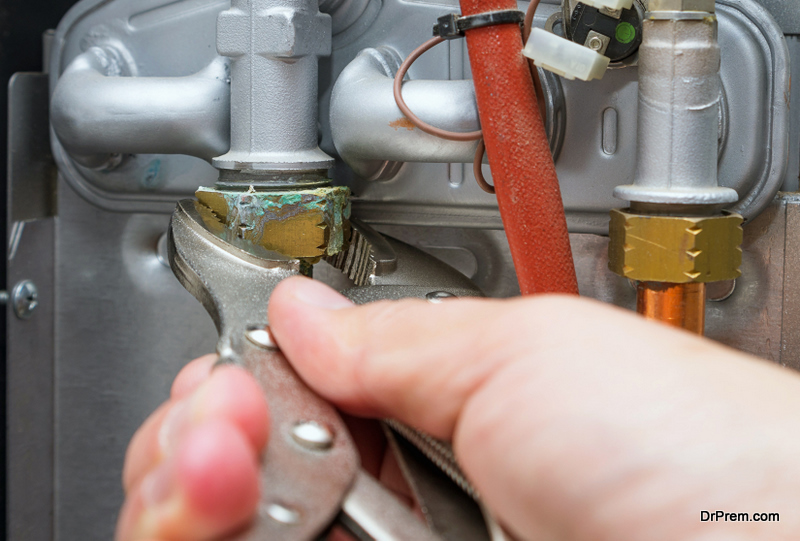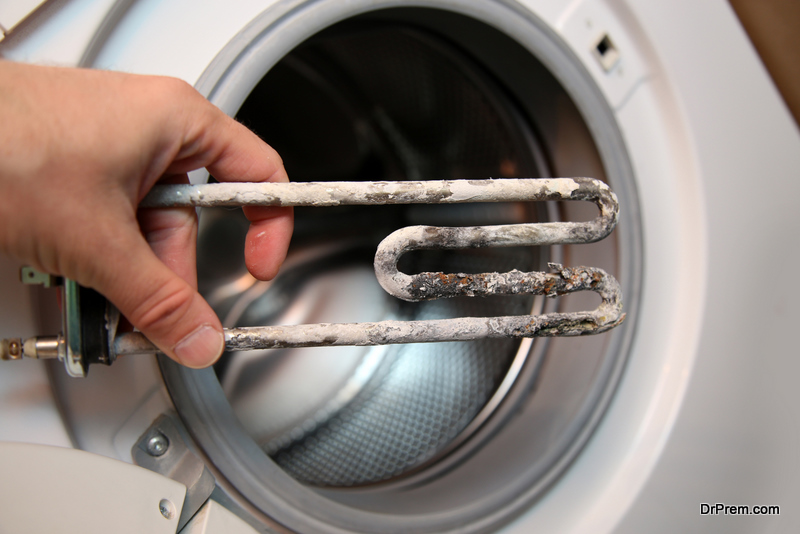It is no secret that hard water is spread seemi hard waterngly everywhere throughout the United States. And while hardness levels vary from region to region, one thing’s for sure: hard water is almost never a good sign.
While drinking hard water may be beneficial, having it float in your plumbing system, appliances, kettles, etc. is detrimental to say the least. But how does hard water affect these items? And how can you prevent it? Let’s find out.
What Is Hard Water?
 The water hardness levels are determined by the content of hard minerals found within. Most times, when dealing with the effects of limescale, calcium and magnesium are to blame. However, there are also other hard minerals that might “contaminate” a body of water.
The water hardness levels are determined by the content of hard minerals found within. Most times, when dealing with the effects of limescale, calcium and magnesium are to blame. However, there are also other hard minerals that might “contaminate” a body of water.
In any case, it’s a natural process that results after the accumulation of said minerals either from the earth or from wherever the water might’ve travelled. Many US households have to deal with hard water on a regular basis. Yes, it can happen with well water and even city water. This is also the main reason why you can see varying levels of water hardness within the same county or even the same municipality.
What Are the Effects of Hard Water?
The concentration of calcium, magnesium, and other sticky hard minerals can lead to various types of problems.
First off, when washing your hands or showering, you might notice that your soap and shampoo don’t produce enough lather. As such, you may end up buying more expensive products and wasting more of them to achieve the results you would’ve gotten with cheaper soap and shampoo had it not been for hard water.
As for your appliances, know that the hard-mineral particles stick on their surfaces, as well as their interior. The formation of hard minerals is called limescale, and it’s been dubbed as the silent appliance killer. When limescale builds up and clogs your pipes, you’ll see an increase in energy and even gas bills. Your water heater, for example, has to output far more effort to achieve the same results.
As for your dishwasher and washing machine… well, let’s just say that their lifespan can be cut in half by it. If you’ve never seen what limescale does to a washing machine’s heating element, you can take a peek below:
https://www.freepik.com/premium-photo/repair-washing-machines-hand-repairman-with-turbulent-electric-heater-covered-with-coating-hard-water-replacing-electric-heater-washing-machine_9005117.html
Yeah, this can happen. How can you avoid it? We recommend loading your machine with a descaling agent every time you run it through a wash cycle. However, that isn’t always convenient since you can run out at any moment, especially when you need to wash laundry.
How to Prevent Limescale Without Chemicals
 If you want to remove water hardness, your best bet would be a filtration system that can trap hard minerals.
If you want to remove water hardness, your best bet would be a filtration system that can trap hard minerals.
Some of these include template assisted crystallization, reverse osmosis systems, and water conditioners. However, the first two require a bit of maintenance and knowledge about plumbing.
On the other hand, the latter hasn’t been time-tested enough to give out a good estimation of its efficiency. But there is an alternative that can net you great results without any of the hassle. An electronic water descaler reshapes calcium and magnesium crystals to make them less sticky. It does so by sending capacitive electronic signals throughout the pipe, thus also eliminating any existing limescale buildup.
Final Thoughts
At the end of the day, limescale is the number one culprit for dying appliances that use water. If you live in an area with high water hardness, relying on a prevention method is absolutely necessary.
Article Submitted By Community Writer




